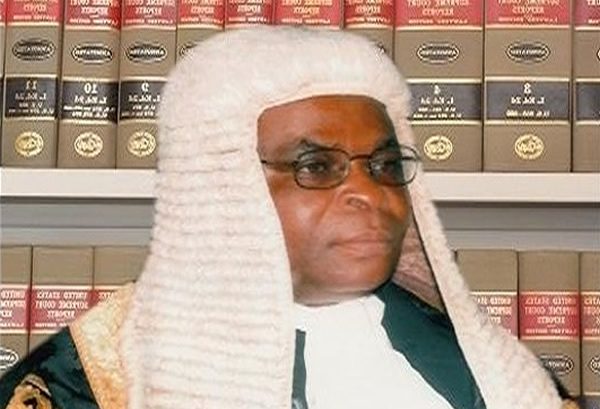This post has already been read 1959 times!
The government must work within the law
The decision of the federal government to drag the Chief Justice of Nigeria, Justice Walter Onnoghen before the Code of Conduct Tribunal over his assets declaration could not have been taken in promotion of public good. This is obvious for many reasons. One, the procedure stipulated by the law leading to the filing of the charges was not followed. The Code of Conduct Bureau is enjoined to seek clarification from any erring public official before referring him to the tribunal and this was not done.
Two, it cannot be right for the federal government to surreptitiously leak the charges to the media only to come to court yesterday to admit that the CJN had not been properly served. Three, the government also knew that the case was dead on arrival given what is already established by the Court of Appeal in a suit brought by the Economic and Financial Crimes Commission (EFCC) against Justice Hyeladzira Nganjiwa, a judge of the Bayelsa Division of the Federal High Court, who was accused of unlawfully receiving $260,000 and N8.6 million through his bank account between 2013 and 2015.
It is instructive that when the federal government charged Justice Nwali Sylvester Ngwuta, also of the Supreme Court, before the tribunal for alleged non declaration of assets, the case was quashed after he cited the above Court of Appeal’s decision. The Nigerian legal system is based on the doctrine of judicial precedent otherwise known as ‘stare decisis’ – meaning that a lower court is bound to follow and apply the decision of higher courts. The question therefore is, if the Code of Conduct Tribunal cannot try Justice Ngwuta, where will it derive the jurisdiction to try the CJN?
Besides, the CJN is the Head of the Judiciary, the third arm of government and chairman of the National Judicial Council (NJC) and the Federal Judicial Service Commission, two important executive bodies established by section 153 of the 1999 Constitution. As the law stands in Nigeria today, the NJC is the only organ that can discipline Judges whose trials can also only be after leaving office by reason of dismissal or retirement.
What makes the case against Onnoghen more unfortunate is that it has brought back the drama which started with his nomination as acting CJN by President Muhammadu Buhari on 10th November 2016. The debate that dominated his eventual nomination and confirmation by the Senate was about the politics of North and South with insinuations that cannot advance the cause of our democracy and national cohesion. That dichotomy has resurfaced with the South-south governors meeting and issuing a resolution asking Onnoghen to disregard the CCT summons. Yet, in the application of law in a secular state, justice should be blind to which section of the country a judge hails from. It should be about the protection of the rights and liberties of citizens and the promotion of the rule of law.
However, there is a need to state clearly that this is not saying that the CJN is above the law. As we have repeatedly re-echoed in our previous editorials, the judiciary is not just any institution, it is an important arm of government that knits human society together. So to that extent, Judges must be above board and should be seen to be so. The point is that if the federal government is genuinely interested in holding Justice Onnoghen accountable for any wrong doing, it ought to follow the laid down procedure for doing so and not resort to blackmail and witch-hunt. The good news is that it is never too late to do the right thing.
Since ours is a country of law, we ought to apply the principle of due process in the conduct of government affairs. To do otherwise is to invite anarchy.
[ThisDay]



